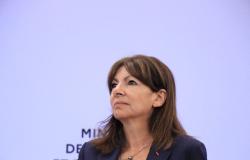
A few days apart, two strong statements from French President Emmanuel Macron on Israel’s war in Gaza and Lebanon provoked immediate and severe reactions from Prime Minister Benjamin Netanyahu. An analysis by Ahmed Faouzi.
The French president’s first statement came during the Francophonie summit, when Macron said he was in favor of stopping arms deliveries to Israel. The second was during a council of ministers when he reminded him not to free himself from UN decisions, because Israel was created by a UN resolution.
Like the war he is waging freely in the Middle East, Netanyahu also leads a aggressive diplomatic war towards all those who criticize him, even among his own allies. It is only in the West that it still finds echo in the media and among a segment of society. Because at the international level, he has long since lost all credibility, and tarnished Israel’s image in world opinion. He openly described the French president’s remarks as “shame”. “As Israel fights the forces of barbarism led by Iran, all civilized countries should stand firmly on Israel’s side,” he replied.
The other criticism that leaked after a meeting of the Israeli council of ministers was when Macron recalled that Israel had been created thanks to a UN resolution. This statement followed several assassinations by Israel, outside its borders, of the leaders of Hamas in Iran and Hizbollah in Lebanon and its repeated attacks against UNIFIL peacekeeperstaking into account neither the charter nor the resolutions of the United Nations. Tel Aviv even went so far as to declare the UN Secretary General persona non grata in Israel, under the pretext that he did not condemn the Iranian attack against the Jewish state.
Here again, the Israeli Prime Minister did not pull any punches by responding, as usual, vehemently against the French president. It was not the UN resolution that established the State of Israel but rather the victory achieved in the war of independencehe retorts. This was won with the blood of heroic fighters, many of whom were survivors of the Holocaust, including the Vichy regime In France. Words strong enough to make France feel guilty and remind Macron of this painful past.
Each time a French leader comes out to criticize Israel, or provide support for the Palestinians, Israeli responses are immediate and bring up references to the Shoah or ready-made accusations of anti-Semitism. As a whole, the French political class no longer dares, and no longer has the courage of its predecessors, to openly criticize Israel. We remember the trip to Israel of Jacques Chirac in October 1996 and the support he gave to the Palestinians. In East Jerusalem, many still remember his revolt against Israeli security and his active support for the Palestinians within Israel itself.
And what more can be said about the reflection of Charles de Gaulle, after the six-day war led in June 1967 by Israel against the Arab countries, when it decided on the embargo of arms sales to Israel? The Jews, he said, until then dispersed had remained what they had always been, that is to say, an elite people, self-confident and dominant, once gathered in the site of their former greatness, come to change into ardent and conquering ambition, the very moving wishes that they have formed for 19 centuries, next year Jerusalem. In our time, none of the current French leaders could adopt such a Gaullian posture.
Macron’s recent statement consisting of reminding Netanyahu that Israel was born from a United Nations resolution therefore seems very timid compared to that of de Gaulle. Despite this, he was criticized both within the political class and by the French media. The President of the Senate Gerard Larcher, to name only him, affirmed that he was stunned that such remarks could be made with regard to Israel. The birth of Israel did not come as a notarial deed noted by the UNdira-t-il.
Faced with the outcry caused by Macron’s statements on Israel, the president issued an update, dated October 17. “It is up to each participant in the council of ministers to be respectful of its rules through ethics and personal discipline. so as not to circulate false, truncated, or out-of-context information.”we could read. Then to continue: it is up to journalists and commentators to treat rumors and reported comments with the necessary precautions. But the observation is that no one has denied the presidential declaration.
If Macron mentioned that Israel was created by a United Nations resolution, he neglected to recall that at that time the France even abstained from voting on the resolution to partition Palestine in 1947 and the admission of Israel to the UN. Recognizing the Jewish state was one of the first priorities for the Americans just after the establishment of the UN to manage the post-war world. The partition vote of September 1947, which required obtaining two-thirds of the votes of the 57 member countries at the time, gave 25 votes for partition, 13 votes against, and 19 abstentions including that of France.
Dissatisfied with the results, the Americans will put pressure on France to lead it to vote second resolution proposed two months after the first on November 25, 1947. The result hardly changed, 25 votes for, 13 against, 17 abstentions and 2 absences. There is still one vote missing for the resolution to be adopted. The Americans then move up a gear by threatening Paris with him cut funding from the Marshall Plan post-war reconstruction, if it does not vote for the resolution.
A new vote was quickly launched this time three days later, on November 29, 1947, when the General Assembly adopted the resolution 181 of the plan to divide Palestine into two states, one Arab and the other Jewish which gave birth to Israel. Although the Americans and the Soviets recognized the new state, France did not officially recognize it until later on May 20, 1949. The reasons for this delay were multiple due to several disagreements between Paris and the new emerging state. We can cite the status of Jerusalem, the situation of the holy places, and the future of French institutions in Palestine.
But France, which prides itself on being the first European country to have emancipated the Jews, was also a Mediterranean power which reigned over North Africa. She knew that recognizing this new country of Israel was going to cause more trouble in her Muslim colonies than bring her any advantages. However, Paris would later catch up when the countries of North Africa emancipated themselves, helping the new state militarily to maintain a certain balance with the Arab world.
Underhand, France facilitated the immigration of French Jews, like those of other European countries towards Palestine. She also turned a blind eye to the Zionist leaders to carry out their activities as they saw fit over the extent of its unhindered territory. This policy was mainly supported by certain Jewish personalities and former resistance fighters such as Leon Blum, René Meyer or Daniel Meyer and many others. Faced with this support, the Quai d’Orsay warned of the dangers that supporting the Zionist movement represented for French interests.
The arrival of Gamal Abdel Nasser at the head of Egypt in 1952, then the nationalization of the Suez Canal by the latter would bring France closer to Israel who, quickly, became strategic partners in the region to contain the ambitions Egyptians. The tripartite aggression between France, the United Kingdom and Israel in 1956 remains a black spot in the history of France in this region. Among the Gaullists, as among the French socialists, everyone feels they bear a heavy debt to the people. Jew whom they could not protect against the Germans during the Second World War.
Several Israeli personalities played a role in this rapprochement, notably Itzhak Shamirconvicted of terrorism by the British, and to whom France had granted asylum before the birth of Israel. Shimon Péres et David Ben-Gurion, they also had access to French officials, and negotiated directly massive arms purchases to France. All this allowed the young Israeli state to equip itself with a quality military arsenal to ensure its defense, and especially to attack its neighbors, probably including nuclear weapons.
This recent exchange of arms between Macron and Netanyahu certainly takes place in a context of diplomatic relations that are, to say the least, tense between the two countries. The French president seems torn between the powerful Jewish community French, a majority of whom support Israel, and a strong French Muslim community more numerous who can no longer stand silence in the face of the massacres of the Palestinian and Lebanese civilian populations.
He knows very well that blind support for Israel discredits his country as it already discredits the entire West which voluntarily turns a blind eye to this modern barbarity. France, like the entire West, will now have more difficulty promoting their values and human rights after their complicity and silence in the face of the massacres committed by Israel.
Do you have a real estate project in mind? Yakeey & Médias24 help you make it happen!





